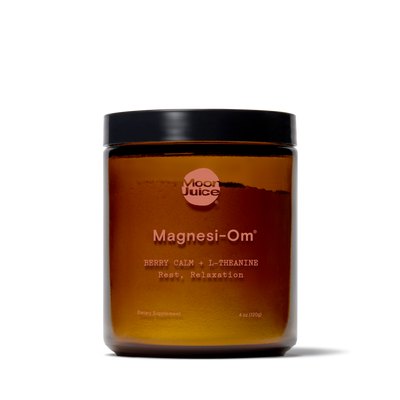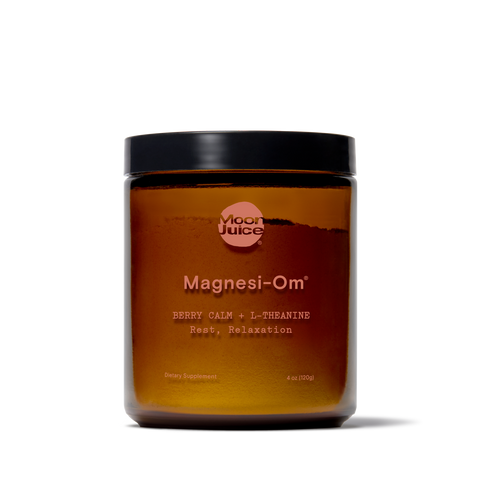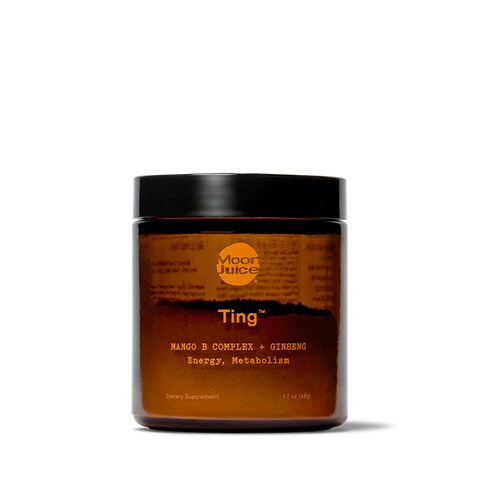Electricity is present everywhere, and that includes our bodies. Our cells actually carry currents, and for this we need electrolytes — or certain electrically charged minerals that maintain functions throughout the body. When our body has an electrolyte imbalance, this can manifest as dehydration or other imbalances. And because we lose electrolytes with our body fluids, or might be deficient more generally, it’s a good idea to look into electrolyte supplementation. If you’ve been wondering when the best time to drink electrolytes is, you’re about to find out.
Why are electrolytes important?
Electrolytes are certain minerals (like Sodium, Magnesium, and Potassium) that conduct electricity when they dissolve in water. These essential minerals are present in our bodily fluids, helping us maintain proper hydration and regulate fluid balance in and out of the cells.
We need electrolytes working together in balance for our nervous system to send signals to our brain and for cells to perform functions throughout the body, from muscle contraction to blood pressure stabilization.
Magnesium, for instance, aids in nerve and muscle function and promotes healthy bone development, while Calcium assists in the secretion of important hormones and enzymes.
Overall, the benefits of electrolytes are that they maintain proper hydration, balance body fluids through osmosis in and out of the cells, regulate nerve and muscle function, transport cellular waste, support cardigan, and cognitive function, maintain the body’s pH, and help rebuild damaged tissue.
How often should you drink electrolytes?
Your body makes electrolytes, and you can also find them in mineral-rich foods and beverages. But because modern soil is often depleted in minerals thanks to agricultural practices like monocropping, the food we eat often isn’t providing us with the amount of nutrients we need, which means many people have low electrolyte levels on a daily basis.
Many of us are deficient in certain electrolytes, and it’s likely that you’ll need to be proactive about adding electrolyte supplementation into your routine. For instance, over 50% of the U.S. population has a Magnesium deficiency. Incorporating a magnesium powder supplement into your daily routine can be an effective way to address this common deficiency and support your overall well-being. Additionally, nearly 70% of Americans fail to meet the recommended daily intake for Calcium due to both poor absorption and low intake.
A daily electrolyte supplement can help correct this imbalance. Mini Dew™ is 2 in 1: electrolytes + minerals for hydration and brain function.* Unlike most electrolyte drink powders or sports drinks that have 2-3 electrolytes and are packed with added sugar, Mini Dew is formulated at Moon Juice with 6 plus full-spectrum essential minerals. This helps to encourage electrolyte, mineral, and fluid balance in and out of the cell.
Aside from diet and supplementation, your hydration levels can affect electrolyte balance, so it’s important to drink enough water. Aim for at least two cups of fluid two hours prior to physical activity and 4-6 ounces every 20 minutes of exercise. An easy way to increase hydration is to add minerals to water.
When to take electrolytes
The best time to drink electrolytes will depend on various factors such as physical activity, hydration levels, and individual needs, but generally, it's recommended to consume them before, during, or after intense exercise or when experiencing symptoms of dehydration. There are also several other situations in which it’s a good idea to consume electrolyte drinks.
During your exercise
Any time you’re sweating a lot, like when you’re exercising, it’s a good idea to drink electrolytes. Once you hit the one-hour mark, it’s recommended that you make sure and replenish electrolytes, especially if you’ve experienced high sweat loss.
If you’re sick
If you’ve been sick, there’s a good chance you’re losing a lot of bodily fluids. This is a time when it’s important to consume some drinks that have electrolytes to help your body rebalance.
When you travel
Leading up to and during travel, it’s a great idea to up your electrolytes. Traveling can cause severe dehydration due to several factors, like high altitude, low humidity in airplanes, and increased activity levels. Many times when we arrive at a destination and experience jet lag, it’s largely because of severe dehydration. To make the transition easier, consume an electrolyte drink to restore your levels of hydration.
After a night of drinking
It’s also a good idea to drink electrolytes before or after a long night out. Alcohol is a known diuretic, so it tends to dehydrate us by causing us to pee out a lot of water. Try a homemade electrolyte drink like electrolyte water if you’re planning on going out and drinking in order to help stave off a hangover the next day.
After being in a sauna
Because you’re sweating a lot when you’re in the sauna, this is an optimal time to replenish electrolytes. If you live in a hot environment where you’re outside all the time, or if your AC breaks, it’s also wise to up your electrolyte intake to balance out sweat loss.
You can take an electrolyte beverage night or day, but the closer you can get to when you expect to veer toward dehydration, the better. For instance, you can take electrolytes mixed with regular water before, during, or after a workout, just like the drinking water you’d be hydrating with.
When you start the day
Because we lose a good deal of hydration as we sleep, thanks to respiration and nighttime trips to the bathroom, it can be good to start the day with electrolytes as well.
Is it better to drink electrolytes before or after a workout?
Drinking electrolytes before or after your workout depends, as sometimes both are recommended. The best time to take electrolytes largely depends on your exercise routine, hydration needs, and electrolyte levels.
Consuming electrolytes before a workout can help maintain electrolyte balance, ensuring proper hydration. This is especially important for endurance athletes or those engaging in prolonged exercise, as they lose electrolytes through sweat and need extra electrolytes to maintain performance. Drinking an electrolyte beverage or electrolyte water before exercising can set you up for success, helping to prevent muscle cramps and dehydration while supporting fluid levels.
After your workout, electrolyte intake is also crucial for recovery, especially if you’ve experienced significant sweat loss. During intense or prolonged activity, your body loses not just water but essential minerals like sodium and potassium, which play a vital role in nerve function and muscle recovery. Replenishing lost electrolytes with an electrolyte drink or powder can help restore balance, aiding in quicker recovery and reducing post-exercise fatigue.
Hydration isn’t just about regular water; adding an electrolyte supplement after your workout can optimize your fluid intake.
Signs you need to drink more electrolytes
Here are some ways you can tell if you might need to take an electrolyte supplement.
Check your sweat
Everyone sweats differently, and people lose different amounts of Sodium when they perspire. If you tend to sweat more or sweat saltier, you may be losing more electrolytes, in which case you should consider replenishing more often. One study found that 20% of marathon runners need to be considerably more careful about their electrolyte intake.
Signs that you tend to sweat out more electrolytes than the average person might be that you notice white sweat marks on your skin or your eyes sting from sweat.
Dehydration
Electrolytes aren’t a replacement for drinking regular water, but they help during times when you expect to be a little more dehydrated, and it’s crucial that you get more electrolytes in if you are imbalanced, such as times when you’ve been sweating a lot or losing a lot of fluids.
In general, it’s important to stay hydrated. If you’re really thirsty and more water isn’t helping, it might be time to take some electrolytes.
Muscle cramps
If you’re experiencing muscle cramps, muscle spasms, or muscle weakness, this could be a sign of an electrolyte imbalance, since electrolytes are needed in order for your muscles to contract properly.
Low energy + mood
Minerals are essential for metabolism, the chemical process that converts food into cellular energy. Our bodies need Potassium, for example, to process carbs. Our nervous system also needs minerals to function properly and regulate mood.
Magnesium plays a role in regulating mood-related neurotransmitters. So when we’re deficient in minerals, we might notice fatigue, low stamina, or low mood as a result.
Other symptoms of electrolyte imbalance
Different electrolytes have different functions in the body, so manifestations of an imbalance can vary. They might include:
- Headaches or irritability
- Confusion
- Stomach problems
- Irregular or fast heart rate
- Numbness in your limbs or digits
If you’re experiencing any of these symptoms and water isn’t helping, talk to your healthcare practitioner to see if an electrolyte imbalance could be at play.

Is it okay to drink electrolytes every day?
Adults and kids over 4 can take electrolytes daily to support optimal balance and proper hydration. But as a rule, it’s important not to go over the top with any supplements. Just like too few electrolytes can send your system into dysregulation, too many can also be problematic for your health. As always, stick to trusted brands and recommended dosages, and consult your healthcare practitioner with any questions about supplementation.
If you think of the body as a house, we need extra electrolytes to keep the lights on. Sodium, Potassium, Magnesium, Chloride, Calcium, and Phosphate are all essential for your health. They help regulate osmotic balance in and between cells and are responsible for functions like muscle contraction throughout your body — including your heart. When to take electrolyte supplements will depend on your diet and lifestyle, but any time you’re exercising over an hour, sweating profusely, or losing lots of bodily fluids, remember to replenish, and always stay hydrated.
Sources
- https://www.ncbi.nlm.nih.gov/books/NBK234935/
- https://pubmed.ncbi.nlm.nih.gov/24562469/
- https://pubmed.ncbi.nlm.nih.gov/9303999/
- https://pubmed.ncbi.nlm.nih.gov/22150427/
- https://pubmed.ncbi.nlm.nih.gov/7965369/
- https://www.ncbi.nlm.nih.gov/books/NBK218740/
- https://www.nhs.uk/conditions/dehydration/
- https://www.ncbi.nlm.nih.gov/pmc/articles/PMC4969023/
- https://pubmed.ncbi.nlm.nih.gov/1576770/
- https://www.ncbi.nlm.nih.gov/pmc/articles/PMC5334560/
- https://www.nejm.org/doi/full/10.1056/NEJMoa043901
- https://pubmed.ncbi.nlm.nih.gov/4033401/
- https://www.ncbi.nlm.nih.gov/pmc/articles/PMC2908954/#S8title
- https://pubmed.ncbi.nlm.nih.gov/26841436/
- https://www.ncbi.nlm.nih.gov/pmc/articles/PMC5371639/
- https://www.sciencedaily.com/releases/2015/03/150304075220.htm
- https://pubmed.ncbi.nlm.nih.gov/17277604/
- https://pubmed.ncbi.nlm.nih.gov/26920240/
- https://pubmed.ncbi.nlm.nih.gov/8604285/













